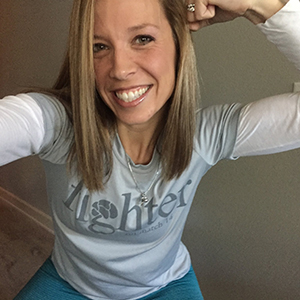
A New Year. A Clean Slate.
January first. A New Year. A Clean Slate. A day that runners and athletes, alongside most of the general public, resolve to change their lives for the better. So does this work? Sometimes yes, most often no. Why? We all have such good intentions. Year after year we set ourselves up to conquer the world by losing weight, getting faster, ridding ourselves of debt, or organizing our lives. New Year’s resolutions work much like diets. They work for a time, but are often not sustainable, mostly because we bite off more than we can chew. Here is a fact that will scare you. ALL DIETS WORK – but only if you stick to it. The problem is, most people struggle to stick with it because the changes they are trying to make in their lives are too big and don’t fit into their everyday life.
New Year’s resolutions are much the same. We resolve to exercise 6 days a week, eat clean, and go to yoga 2 times a week. All good goals, and for about a month things run pretty smoothly and then, life happens. We miss a few days due to kids being sick, or a body part starting to hurt. A family member needs you, or a long lost friend came from out of town. Once the pattern is broken, our mind quickly says oh well, I wasn’t perfect, I can’t do this, and suddenly 3 days off turns into 3 weeks off which then turns into 3 months. I worked in a gym for years and every year it was the same. January first I’d be completely annoyed that there were no longer good parking spaces to be found but come Valentine’s Day I was back to VIP parking. So should we give up on resolutions? Absolutely not! Let’s just look at them a bit differently.
Every year I start my clients talking about the upcoming year’s goals. I don’t use the word resolution because to me, it feels as if I were doing something wrong before. We are where we are in life, be proud of that, make New Year’s goals that will help you stay positive by being realistic. Phrase it as such: This year I will accomplish this……. There is nothing worse on the psyche then saying “I’m going to work out 6 days a week this year”, or “I’m not going to eat sugar this year.” And then the first time you miss a day at the gym or lick the frosting off a cupcake you feel like a horrible failure. We need to set ourselves up for success. Little successes lead to bigger successes. A simple change in phrase to “I’m going to work out more this year” or “I’m going to eat less sugar this year” helps your mind not jump a cliff when you slip up. When you slip up, reassess by looking at the whole picture, then get back on the wagon.
Set A, B, and C goals. Small goals lead to big goals. Then, WRITE THEM DOWN! Yep, it’s as simple as that! Use an old fashioned paper and pen, no tablet, phone or computer. Time after time, studies show that people who write down their goals are more apt to accomplish them. Put the paper in a spot you can look at it regularly so you can refresh your memory, especially on a day where the goal seems hard. Check off your smaller goals as you accomplish them! It is rewarding to see yourself improving or hitting smaller benchmarks. This simple task makes it feel as if you are getting closer to the big goal. Use the A, B, and C goals to master success.
Don’t be overly ambitious. Did she just say be lazy? Kind of…… Small changes warrant big successes because we are more apt to stay with it if it’s not so overwhelming. If I were to create a list for myself, it would look similar to this:
A: I want a better work/life balance and to live more in the moment this year.
B: I want to be on my phone less, I want to see my kids more, I want to be better about not being distracted at family mealtime. I want to make sleep a priority. I want my friends to know how important they are to me.
C: Friday nights I don’t want to have my phone. Sunday mornings I want to lay in bed. When I get in the car with my kids, I want to be less distracted by life and initiate more conversations. Two times a month I want to reconnect with my friends to make sure they are ok. I want to spend less time taking pictures and posting on Facebook and instead watch what is happening around me touching, seeing, and smelling the experience as it is unfolding in front of me.
My A goal seems enormous at first, but as I break it down it seems much more manageable and may even lead to starting some new lifelong habits. Goals are not accomplished overnight. If I break it down to C goals the task becomes even more manageable. Month one: I won’t use my phone Friday night, month two I will sleep in on Sundays, then before you know it, I have a better work-life balance, without too much effort.
Lastly, when life happens and you get off the wagon, instead of throwing the towel in and turning a missed day at the gym into 2 or 3, cut yourself some slack. Remember we are all works in progress, try to be 80 percent good and allow yourself some flexibility to not be so hard on yourself. If you miss one C goal look at the overall goal. Will one Friday night with my phone affect my overall goal of finding a better life balance? Nope, I will just try again next week. We are all in control of our behaviors if we recognize them. Recognize the mistake then change it the next time. No need to have 1 cookie turn into 17. Here are some of the goals my runners chose this year.
Monica: “I vow to learn how to PACE myself” Monica recognized something she struggled with last year and decided to give herself time to work on it. She set up that goal perfectly! Now I will help her get there by pulling out her B and C goals and creating a plan to achieve it. We will do some races at different paces to help her confidence. I will design workouts around different pacing strategies and make her get on the track and use her watch only. This is a very attainable goal for her and I like that she is challenging herself. It takes guts to look at yourself objectively and go for a goal that is uncomfortable.
Sharin: “I’m going to stop telling people I’m only a slow runner” Sharin is going to stop referring to herself as slow and celebrate that she is becoming stronger daily. Daily goals, like stopping use of the word “slow” and “just”, will help her achieve this goal! Seems like a little goal but will lead to greater overall confidence. I will give her workouts that leave her feeling stronger and not defeated.
Danielle: I’m going to remove the word ‘only’ from my vocabulary when it comes to race distance. (e.g I’m only running 10 miles). This is a big one for me to see as a coach and it excites me. There is a perception in many running groups that 5ks are dumb or not enough. Many runners think unless you do marathons you are not a “real runner”. As a marathoner myself, I will say that people that think 5ks are not hard are not running them correctly. Every race distance is hard. Training for any race requires specific training and takes dedication and hard work to do it well. Changing this perspective requires stepping out of one’s comfort zone and training a different race distance. Just by doing this and being proud, Danielle will strengthen her overall run shape.
So as we tackle a New Year, I ask that you focus on goals rather than resolutions. I bet you’ll see better results.

 Next Post
Next Post


